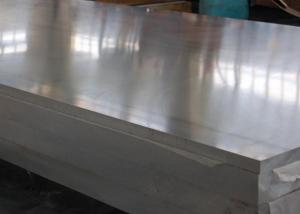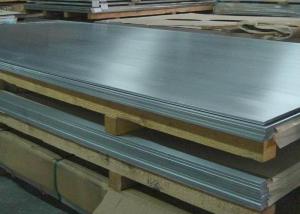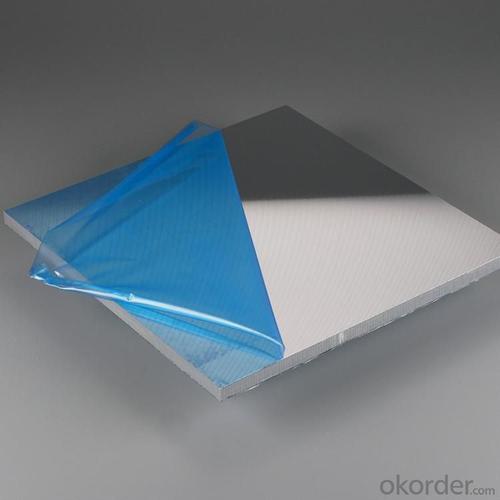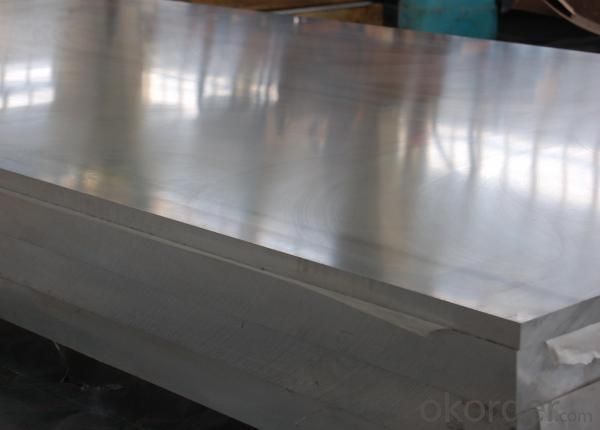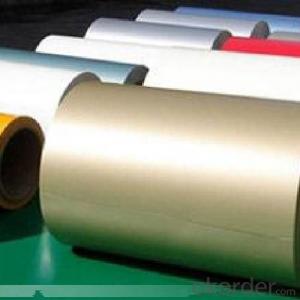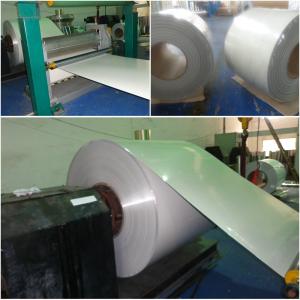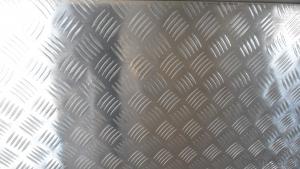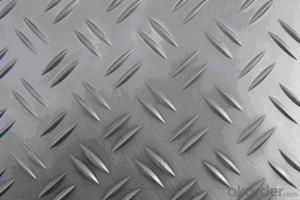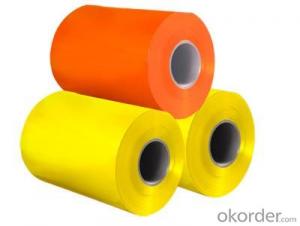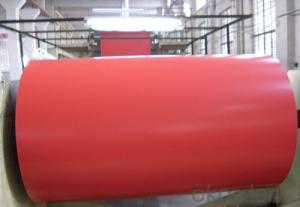Adhesive Backed Aluminum Foil Sheets - Aluminum Coil
- Loading Port:
- China Main Port
- Payment Terms:
- TT or LC
- Min Order Qty:
- -
- Supply Capability:
- 1000 Tons Per Month m.t./month
OKorder Service Pledge
OKorder Financial Service
You Might Also Like
1 Specifications of Aluminum Sheet 1070
Alloy Number | AA1050 , AA1060 ,AA1070 ,AA1100 etc. |
Temper | H12, H14, H16, H18, H22, H24, H26, H32, HO, F |
Thickness | 0.1mm – 500mm |
Width | 10mm- 2200mm |
Standard | GB/T3880-2006, ASTM, ISO, EU standard |
Special Specification is available on customer’s requirement
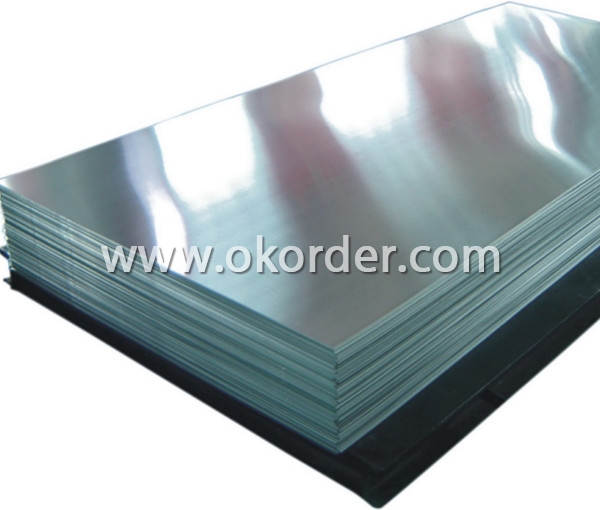
2 Usage/Applications of Aluminum Sheet 1070
Aluminum Plates is between 0.1 mm and 500mm in thickness and has a wide variety of uses in the construction industry including aluminium siding and roofing. Sheet is also used widely in construction, decoration, transport applications and other various industrial filed, such as automobile body panels, airframes, curtain walls and the hulls of boats etc.
CNBM produces aluminum plates which meets the highest standards in its own mill while save the cost. Our strong quality control term bring you the most-qualified products. And with state-of-the-art equipment, and the state owned company background, we have to say, you will understand why there are so many company choose CNBM to be their supplier. CNBM aluminum complying with YS/T 429-2000(Chinese Industry Standard),GB/T 3880,EN485,ASTM B209.
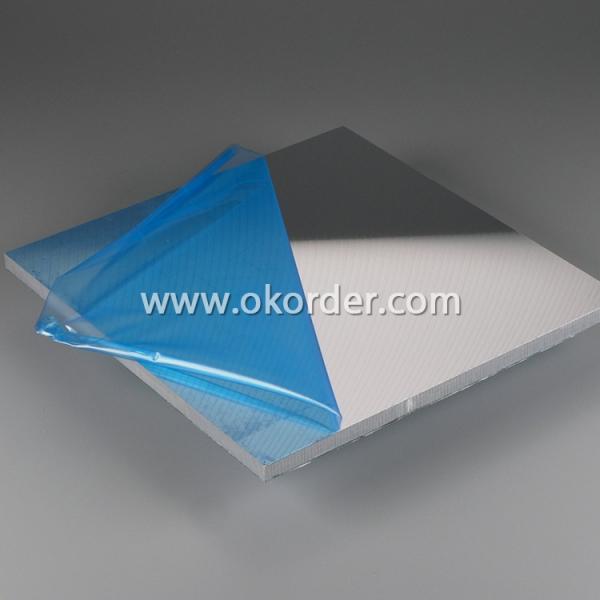
3 Packaging & Delivery of Aluminum Sheet 1070
Packaging:Seaworthy package, bubble plastic bag inside, anti-moisture paper wrapped outside, covered with cartons, on wooden pallets, in containers. Pallet weight: Max. 2.30 tons.
Shipment:the goods will be delivered in 40 days after getting the buyer's payment.
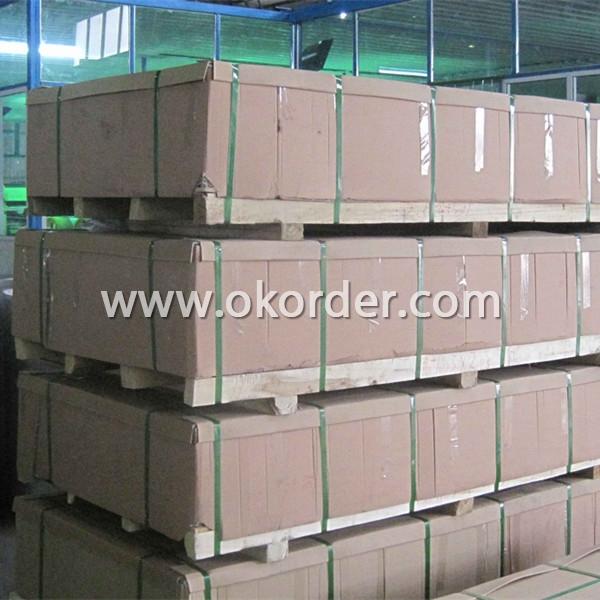
4 Production Flow of Aluminum Sheet 1070
Rolling--Annealing--Slitting--Sawing, Cut-To-Length, Shearing
- Q: This question asks for methods to ensure that the connections between aluminum sheets are both secure and resistant to water leakage.
- <p>To ensure that the joints between aluminum sheets are secure and watertight, use a combination of sealants and appropriate fasteners. First, clean the surfaces to be joined thoroughly. Apply a high-quality, waterproof sealant along the joint. This sealant should be compatible with aluminum and resistant to UV, temperature changes, and water. Then, use corrosion-resistant fasteners such as stainless steel screws or rivets to join the sheets. Ensure that the fasteners are tightened correctly to prevent leaks. Additionally, consider using a gasket or a weatherstrip along the joint for added watertightness. Regularly inspect and maintain the joints to ensure ongoing watertight integrity.</p>
- Q: Can 101 aluminum sheets be used for roofing or siding?
- Yes, 101 aluminum sheets can be used for roofing or siding.
- Q: Can aluminum sheets be bent without breaking?
- Yes, aluminum sheets can be bent without breaking. Aluminum is a highly malleable metal, which means it can be easily shaped and bent without fracturing or breaking. However, the degree of bendability may vary based on the thickness and alloy composition of the aluminum sheet.
- Q: Can 101 aluminum sheets be anodized for outdoor architectural applications?
- Indeed, it is possible to anodize 101 aluminum sheets for outdoor architectural purposes. Anodizing, a procedure that enhances aluminum's protective layer, grants it increased resistance against corrosion and deterioration. This technique is frequently employed in architectural applications to safeguard aluminum from outdoor elements. By subjecting the 101 aluminum sheets to anodization, they can be rendered sturdier and better suited for outdoor utilization, guaranteeing their long-lasting appearance and performance.
- Q: What are the different grades of aluminum sheet?
- The market offers a variety of aluminum sheet grades, each possessing unique properties and applications. Some notable grades are as follows: 1. Grade 1100: Renowned for its exceptional resistance to corrosion and high thermal conductivity. It finds common usage in chemical equipment, reflectors, heat exchangers, and electrical conductors. 2. Grade 3003: This grade contains manganese, rendering it highly resistant to corrosion. It is frequently employed in cooking utensils, storage tanks, and architectural trim. 3. Grade 5052: Exhibits good formability and high fatigue strength. It is frequently utilized in marine applications such as boat hulls and components, as well as in aircraft fuel tanks and structural parts. 4. Grade 6061: Distinguished by its excellent strength-to-weight ratio and favorable machinability. It is commonly employed in automotive parts, bicycle frames, and structural components. 5. Grade 7075: Possesses exceptional strength and toughness, making it suitable for aerospace applications, including aircraft wings and fuselage structures. Every aluminum sheet grade possesses unique characteristics and is selected based on specific application requirements. Factors such as corrosion resistance, strength, formability, and machinability should be carefully considered when determining the appropriate grade.
- Q: is steel better for making bicycle frames.....how does it differ from the aluminum framed bikes?
- It depends on the type of riding you do. If you ride long distance you don't want aluminum, it is very stiff and will wear out your body with jolts from the road. Steel provides some degree of flex, which softens road jolts. You might want to go to a bike shop and hold a steel bike and alum bike so you can appreciate the difference in weight. Another thing about alum bikes is they do suffer from metal fatigue, so they will not last for 20 years like a steel bike (perhaps even much less depending on usage).
- Q: Hi guys. I was just wondering if you can give me some tips or information on what you know about painting on metal. The metal that is of concern is aluminium and I would like to put a stencil over this aluminium and just blast it with a can of krylon. Of course...this aluminium piece is actually part of the housing for my cell phone so doing it like this would probably not be right and the paint would probably wear out. I am mainly interested in finding out what kind of paint to use, what tools i need, and how to achieve an extremely! durable! matte finish because this phone is thrown around and going in and out of my pocket the paint will have to withstand getting rubbed down everyday by my pockets.That was a very long question, thanks for bearing with me and thanks in advance for those who provided me with an answer/thought. THANKS!
- Krylon is a very tough metal medium and the newer product they have at wal-mart in the paint section is fantastic. I don't know about rustoleum, other than another brand, but you could use a coat of polyutherine matte varnish. You can get this at wal-mart in the paint section or a hardware store. It will seal anything.
- Q: According to the reactivity of metals, aluminum chloride (AlCl3) will not react with copper (Cu). But I am almost sure that the copper nail I put in the aluminum chloride solution became shiny and lost its copper lust. Why did this reaction happen?
- Well done on noting unexpected observations and following up. Your copper is coated with a dull coating of copper oxide. It became shiny because aluminium salts are acidic in water and the acidity dissolves the coating to form a copper salt and leaving the shiny copper. CuO + 2H3O+ ---- Cu2+ + 3H2O The reaction to form the acidity, a hydrated hydrogen ion H+(H2O) or H3O+ is fairly complex. If aluminium chloride is dissolved in a large amount of water the solution is acidic, but this has nothing to do with formation of hydrochloric acid. The solution contains hydrated aluminium ions and chloride ions: AlCl3(s) + aq → [Al(H2O)6]3+(aq) + 3Cl -(aq) The hexaqua complex ion behaves exactly like ions of similar type formed from transition metals; the small, highly charged metal ion polarises (withdraws electron density from) the water molecules that are attached to the aluminium ion through dative covalent bonds. This makes the hydrogen atoms d+ and susceptible to attack from solvent water, which is acting as a base. The complex ion is deprotonated, causing the solution to be acidic from the formation of hydroxonium ions H3O+: [Al(H2O)6]3+(aq) + H2O(l) → [Al(H2O)5OH]2+(aq) + H3O+(aq)
- Q: Are aluminum sheets suitable for marine vessel construction?
- Yes, aluminum sheets are suitable for marine vessel construction. Aluminum is lightweight, strong, and resistant to corrosion, making it an ideal material for building boats and ships. It also offers good thermal conductivity and is easily weldable, making it a popular choice in the marine industry.
- Q: what kind of abradant should be used in the deburring of aluminum sheets? How to grind?
- we usually use resin grind stone to grind aluminum sheets, Vibration Grinding Mill is also ok.
1. Manufacturer Overview
| Location | Henan,China |
| Year Established | 2002 |
| Annual Output Value | Above US$200 Million |
| Main Markets | Mid East;Eastern Europe;North America |
| Company Certifications | ISO 9001:2000;ISO 14001:2004;OHSAS 18001 |
2. Manufacturer Certificates
| a) Certification Name | |
| Range | |
| Reference | |
| Validity Period |
3. Manufacturer Capability
| a) Trade Capacity | |
| Nearest Port | Shanghai |
| Export Percentage | 30%-50% |
| No.of Employees in Trade Department | 21-50 People |
| Language Spoken: | English;Chinese |
| b) Factory Information | |
| Factory Size: | Above 100,000 square meters |
| No. of Production Lines | Above 10 |
| Contract Manufacturing | OEM Service Offered;Design Service Offered |
| Product Price Range | Average |
Send your message to us
Adhesive Backed Aluminum Foil Sheets - Aluminum Coil
- Loading Port:
- China Main Port
- Payment Terms:
- TT or LC
- Min Order Qty:
- -
- Supply Capability:
- 1000 Tons Per Month m.t./month
OKorder Service Pledge
OKorder Financial Service
Similar products
Hot products
Hot Searches
Related keywords

